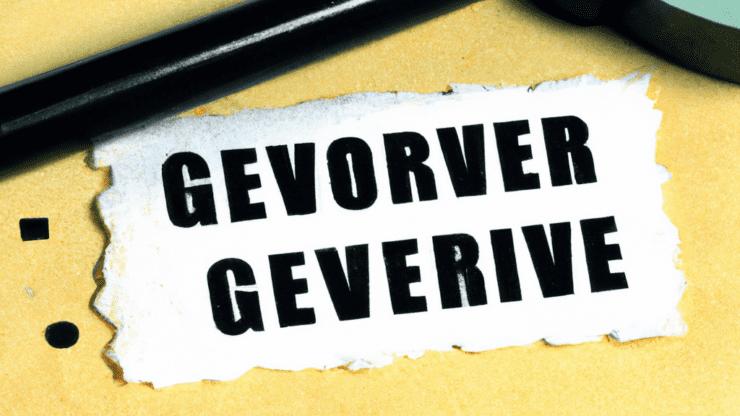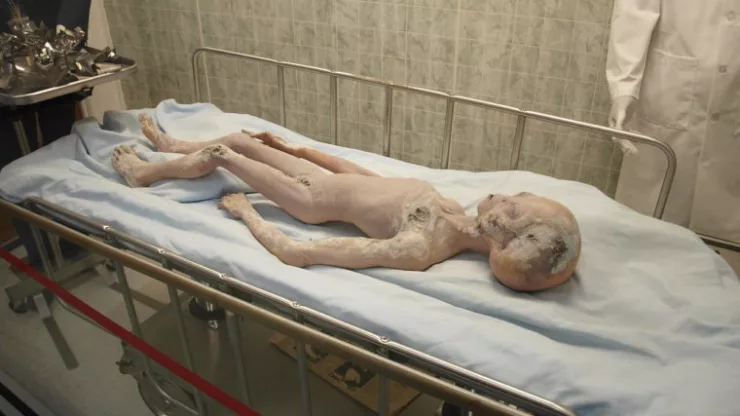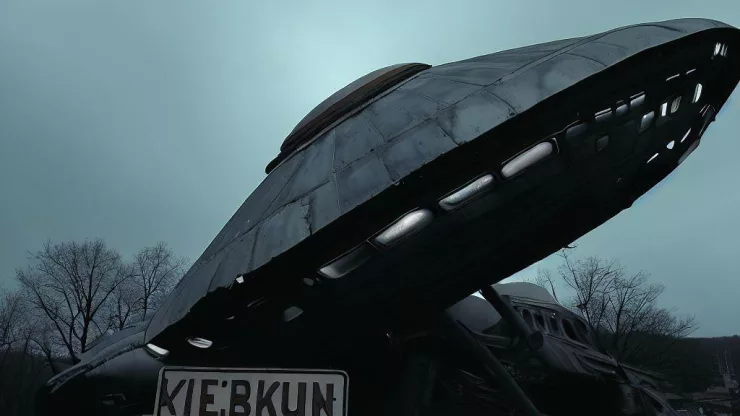Throughout history, there have been numerous incidents where the government has covered up information from the public. These cover-ups often involve top-level officials conspiring to withhold sensitive information to protect their interests.
While some cover-ups may be necessary for national security, others are done for political gain, economic reasons, or to avoid public panic.
In this article, we will explore the truth behind government cover-ups, their impact on society, and how to uncover them.
Jump to Section
Introduction
Government cover-ups have been a source of controversy and conspiracy for decades. The mere notion of the government deliberately withholding information from the public strikes a nerve in many individuals.
With the rise of technology and the ability to share and access information instantly, the public is more aware than ever of government actions, both good and bad.
In this article, we will delve into the world of government cover-ups, exploring their history, reasons for their existence, and how to uncover them.
The Truth Behind Government Cover-Ups
Introduction
Before we dive into the specifics of government cover-ups, it’s important to understand what they are.
A government cover-up occurs when the government actively conceals information or actions that would otherwise be available to the public.
The reasons for these cover-ups are varied and can range from protecting national security to concealing illegal activities.
Historical Government Cover-Ups
Government cover-ups have occurred throughout history, and many of them have shaken the public’s trust in their leaders. Some of the most famous cover-ups include:
-
Watergate Scandal: In 1972, President Nixon’s re-election campaign was discovered to have broken into the Democratic National Committee’s headquarters in the Watergate building.
Nixon attempted to cover up the break-in, but the truth eventually came out, leading to his resignation.
-
Iran-Contra Affair: During the Reagan administration, senior officials secretly sold weapons to Iran, which was under an arms embargo, in exchange for hostages.
The profits from the sale were then used to fund anti-communist rebels in Nicaragua.
When the news broke, it led to a scandal and several officials were indicted.
-
Tuskegee Syphilis Experiment: From 1932 to 1972, the U.S. government conducted a study on untreated syphilis in African-American men.
The participants were falsely told they were receiving free healthcare, but in reality, they were not being treated for the disease.
The study was not publicly known until the 1970s and led to new regulations on human experimentation.
-
Project MKUltra: In the 1950s and 60s, the CIA conducted mind-control experiments on unwitting American and Canadian citizens. The project was kept secret until the 1970s, and the surviving victims were eventually compensated by the government.
Reasons for Government Cover-Ups
There are several reasons why the government may choose to cover up information or actions. These include:
-
National security: The government may withhold information that could compromise national security or endanger the public.
-
Political gain: Officials may conceal information that could damage their political standing or that of their party.
-
Economic interests: The government may cover up information that could harm the economy or the interests of corporations.
-
Avoiding public panic: The government may withhold information that could cause public panic, such as information about a potential terrorist attack.
-
Protecting individuals or organizations: The government may conceal information that could harm individuals or organizations, such as intelligence sources or ongoing investigations.
The Role of the Media
The media plays a vital role in uncovering government cover-ups.
Journalists often use investigative reporting to expose corruption or wrongdoing in the government.
The media can influence public perception and put pressure on officials to be more transparent. Some examples of the media uncovering government cover-ups include:
-
The Pentagon Papers: In 1971, the New York Times published classified documents that revealed the U.S. government’s involvement in the Vietnam War.
The publication led to a Supreme Court case that ruled in favor of the Times and established the importance of a free press in holding the government accountable.
-
Edward Snowden: In 2013, former National Security Agency contractor Edward Snowden leaked classified documents that revealed the extent of government surveillance on American citizens. Snowden’s actions sparked a national conversation on privacy and government transparency.
The Impact of Government Cover-Ups on Society
Government cover-ups can have a significant impact on society. They can lead to a loss of trust in the government and contribute to conspiracy theories.
They can also have implications for democracy if citizens feel their elected officials are not being held accountable. Some examples of the impact of government cover-ups include:
-
The JFK Assassination: The government’s handling of the investigation and subsequent cover-up of President Kennedy’s assassination has led to conspiracy theories that continue to this day.
-
Watergate: The Watergate scandal eroded public trust in the government and led to new laws and regulations to prevent similar abuses of power.
Examples of Current Government Cover-Ups
There are several ongoing government cover-ups that have come to light in recent years. These include:
| Cover-up | Reason |
|---|---|
| The Fast and Furious Scandal | Political gain |
| Benghazi Attack | National security |
| NSA Surveillance Program | National security |
| Russian Election Interference | Political gain |
| UFO Sightings by Military Personnel | Avoiding public panic |
How to Uncover Government Cover-Ups
Uncovering government cover-ups can be challenging, but not impossible. Whistleblowers, investigative journalism, and the Freedom of Information Act are all ways to shed light on government actions.
Some examples of successful efforts to uncover government cover-ups include:
-
The Pentagon Papers: Journalists obtained classified documents from a whistleblower and published them, leading to a Supreme Court case that ruled in favor of the Times.
-
Watergate: Investigative reporting by journalists eventually led to the resignation of President Nixon.
Conclusion
In conclusion, government cover-ups have been a part of history for centuries. While some cover-ups may be necessary for national security, others are done to protect political or economic interests.
The media plays a vital role in uncovering government cover-ups, and citizens can hold their elected officials accountable through whistleblowers, investigative journalism, and the Freedom of Information Act.
It’s essential to hold the government accountable to maintain trust and transparency in our democracy.
References
- Watergate. (2021, April 09). History. https://www.history.com/topics/1970s/watergate
- The Iran-Contra Affair. (2021, March 10). History. https://www.history.com/topics/1980s/iran-contra-affair
- Tuskegee Syphilis Experiment. (2019, January 22). History. https://www.history.com/news/the-infamous-40-year-tuskegee-study
- Project MKUltra. (2020, September 01). History. https://www.history.com/topics/us-government/history-of-mk-ultra
- United States v. New York Times Co. (1971) – Case Summary and Case Brief. (n.d.). Laws.com. Retrieved August 15, 2021, from https://www.laws.com/supreme-court/united-states-v-new-york-times-co-1971
- Greenwald, G. (2013, June 09). Edward Snowden: the whistleblower behind the NSA surveillance revelations. The Guardian. https://www.theguardian.com/world/2013/jun/09/edward-snowden-nsa-whistleblower-surveillance
- Fast and Furious scandal. (2018, October 08). History. https://www.history.com/topics/21st-century/fast-and-furious-scandal
- Benghazi Attack. (2021, March 29). History. https://www.history.com/topics
Greetings fellow space travelers, I am Draco Blaze, creator of Alienated Media who is passionate about exploring the unknown and writing about my experiences with extraterrestrial life.
My focus is on alien encounters and creating thought-provoking sci-fi short stories that transport readers to new worlds and realities.
Feel free to contact me at [email protected].





